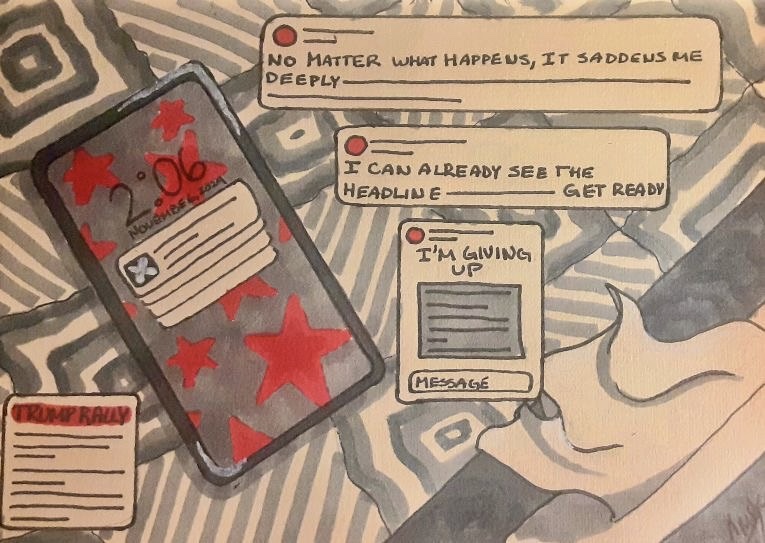Perhaps it’s the English major in me that needs to know a word’s whispered implications, but recently I’ve been fascinated by the categorization of casual sex as “meaningless.”
College cultures tend to adhere to the stereotype that casual sex is insignificant, according to a Feb. 22, 2022 article in Medical News Today.
The Vermont Cynic has run pieces such as “Hookup culture is ruining our idea of sex” and “Don’t participate in hookup culture,” that focus on the pitfalls of casual sex’s perceived triviality.
Other college newspapers, like The Daily Princetonian’s article “The ‘fun’ model just isn’t sustainable: a plea against hookup culture,” similarly attest to casual sex’s lack of “meaningful” connection.
The problem with “meaningless” or “insignificant” is how these two words perpetuate a single, homogenous narrative about what gives sex meaning.
This creates an exclusionary, heteronormative definition of important sex, said Jenna Emerson, a part-time adjunct faculty in human development and family science at UVM.
“Our society, researchers, writers, politicians have defined what is the most meaningful sex […] and it is cisgender, heterosexual, within marriage to procreate,” Emerson said.
She said that no sex is without meaning, though that meaning is determined by each individual’s experience.
If one claims that casual sex is devoid of meaning, committed sex becomes the only meaningful act. For women, meaningful sex has traditionally been associated with marriage.
“There has been a sexual permissiveness for men outside of marriage, but not for women,” Emerson said.
Women’s sexual freedom has historically been restricted in the institution of sex. Despite a culture of sexual liberation, the labeling of casual sex as “meaningless” condemns women’s engagement in hookups.
Women should refrain from engaging in casual sex because women’s brains aren’t built for low-commitment sex, according to an April 30, 2022 article in Psychology Today.
The article cited a study that investigated how cisgender men and women experience casual sex. It found that women were more likely than men to feel guilt and emptiness after a casual hookup.
Oxytocin, colloquially known as the “cuddle hormone,” is released during sexual activity and promotes well-being, according to a June 13, 2023 article in Harvard Health Publishing.
The Psychology Today article uses cisgender women’s higher production of oxytocin to claim that they get more emotionally attached in sexual encounters.
“Because women’s brains release so much more oxytocin than men’s brains [during sex], women feel these negative effects of casual hookup,” the authors stated.
The article recommends that women, in order to respect their nature and bodies, adhere to traditional values of restricting sexual interactions.
“[This] view respects a woman’s natural inclination to place more value on sexual intimacy than men do,” stated the authors.
Couched in a scientific study, quotes such as “a woman’s natural inclination” expose the misogynistic bias of the Psychology Today article.
The citation of this misleading article in The Daily Princetonian piece highlights the role of sexist narratives in defining casual sex as “meaningless,” thus limiting women’s sexual autonomy on college campuses through antiquated gender roles.
The concept that casual sex is meaningless impacts women’s sexual freedom across sexualities. Talia Mcmahon, a junior at UVM, talked about how the stereotypes around women’s perceived emotional inclination impact the queer community.
“Honestly, I don’t have a similar experience, but a lot of my roommates and people I know who like men and women, definitely would prefer men for a one-night stand,” Mcmahon said.
The idea that women are naturally disposed to “meaningful” sex—suggesting sex in a committed relationship—subconsciously manifests in the queer community.
“There is the stereotype that lesbians don’t just hookup once, that they U-Haul and it’s never as simple as hooking up once,” Mcmahon said.
If casual sex is meaningless and the sex women engage has to be meaningful, then women are excluded from the world of flings.
The meaning behind “meaningless” exposes language’s function as both expressive and oppressive—just some food for thought for your next pillow talk.














